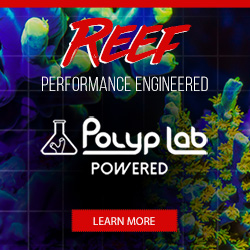This month Advanced Aquarist is pleased to present what, in our judgment, is a very important paper, entitled Total Organic Carbon (TOC) and the Reef Aquarium: an Initial Survey, Part 1, Ken S. Feldman and Kelly M. Maers, from the Department of Chemistry, The Pennsylvania State University, University Park, PA 16802.
As most of our readers know the coral reefs of the world are in trouble, with some scientists suggesting that as much as 70% of the planet’s coral reefs will die within the next 50 years. Research suggests that the biochemical causes are complex, with human activity playing a significant role, and not surprisingly, the forces causing problems for wild corals are all too similar to those that occur in our captive reefs. For example, aquarists often have to deal with what has been referred to as RTN (rapid tissue necrosis), which often appears suddenly, and with devastating results.
It has been my experience that a reef tank reaches optimum health after only a few months, and then gradually environmental factors appear to be deteriorating. Along with the development of unwanted algae and cyanobacteria, water quality becomes more lagoon-like, and in general our man made reefs are less able to support the healthy variety of sea life that it initially did. Part 1 of this paper, along with part 2, which will appear next month, offers us invaluable insight into organic carbon, both Dissolved Organic Carbon (DOC), Particulate Organic Carbon (POC), and what effect they have on water quality.
Man’s carbon foot print on planet Earth is of great concern today, and for the reef keeper, it is no less a concern, although without as much global consequence. In some important ways our reef aquaria are microcosms, with the world’s oceans the macrocosm.
In this issue too we have another in Sanjay Joshi’s testing of reef lighting equipment, and Dana Riddle’s beginning study of coral reproduction. Jake Adams in previous issues offered our readers valuable information regarding water motion in reef aquaria, arguing that water motion is even more important than lighting. In this issue Jake provides us with a review of the new Maxi Jet Utility Pumps 1100, 1800 and 3000.

Though my reef animals, both vertebrates and invertebrates are quite healthy I continue to battle cyanobacteria. Because water motion is strong in my reef tank this cyanobacteria is unable to smother my corals, but it remains a nuisance, and an indication that my water quality is not as pristine as what is found in nature.











0 Comments